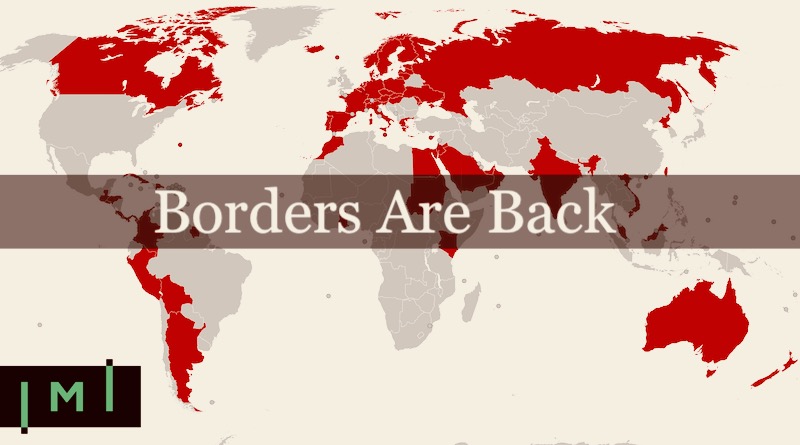Investment Migration in the Post Visa-Free Travel World
In a world where visa-free travel is suspended indefinitely – in some cases permanently – what happens to investment migration? Peter Macfarlane is back.
The crisis in which we find ourselves is quite unlike anything most of us have ever experienced. The only valid comparisons I can think of are those of us who have lived in war zones.
At the moment, I’m fairly comfortable for the duration, knowing that because of my multiple passports and residency permits I am welcome in quite a few different countries and I have comfortable, secure places to go to in different parts of the world. Even so, I made the mistake of not applying for a residence permit in one of my safe havens and I was, therefore, unable to get there last week. (More on that later)
I’m not sure how long vast swathes of the world can live under a state of fear and lockdown – but things are changing day by day and may well get worse before they get better. At some point, I expect things to return to ‘normality’.
What I can guarantee you is that the ‘new normal’ that we will be returning to, will be very different from the normality we are accustomed to.
Even a month or two ago, if I had told you that most flights around the world would be grounded, would you have believed me? That martial law (albeit by another name) would be imposed in many first-world countries; that borders between European Union countries, even state borders within EU countries, would be closed?
The New Normal – Positive and Negative
Overnight, some people will be a lot richer. Others, especially many small business owners, will – sadly – lose everything.
The system will be different. Better, in some respects. We will all have a completely different outlook on Black Swan-type events, having survived one first-hand. On the positive side, I think an old-fashioned sense of community and family life is being restored, and the effects of the economic slowdown (stop) on the environment will be positive: allowing us to breathe cleaner air and eat healthier food.
However, in times of panic, people willingly give up civil rights. It is highly unlikely they will get most of them back again. And huge masses of the global population, including many people filled with bitterness and jealousy, now know that it really is within the realms of possibility to have governments implement extreme measures on the population in general.
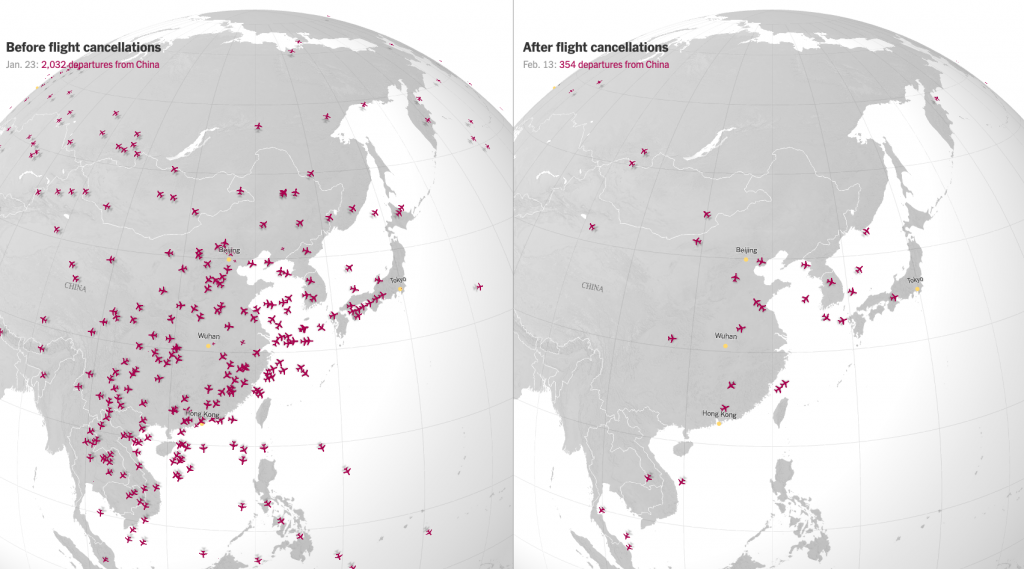
We’ve lived through not just a few “Chinese” pandemics (tipping our caps to the fact that Hong Kong was British at the time of the Hong Kong Flu) but also the Middle Eastern Respiratory Syndrome (MERS), the Mexican swine flu and now the Chinese Wuhan Coronavirus. If we’ve studied history, we also know about Spanish flu and maybe even the Antonine Plague.
What pandemic will come along next? It really doesn’t matter if it’s the Hogwarts Virus, the Vanuatu Parrot Flu or the Malagasy Mad Sheep Syndrome – be prepared to hear the calls: “Politicians acted too slowly with Covid-19 and thousands of people died. This time we need a faster, stronger reaction!”
This, dear reader, is the basis of the new normal.
Political Consequences of the Coronavirus
Whilst the clear majority of politicians are in favor of lockdowns, there have been politicians from all sides of the spectrum who have argued for less extreme measures. Boris Johnson in the UK, for example, and then Bolsonaro in Brazil, and AMLO in Mexico (from opposite extremes of the political spectrum), and now even Putin.
Trump himself did nothing until pressure from Fox News to “seal the border” became too much. All of these leaders have faced enormous criticism and have now broadly decided to go with the flow. Whilst the pandemic has become very politicized at many levels, it is definitely not a traditional left versus right kind of politics. Nor is it nationalist versus globalist.
Would it be right to describe this as a “new world order”? I cannot say. One thing that’s certain, though, is that the vast majority of the public supports lockdown measures and, in places where lockdown is not fully implemented yet, in the UK and USA for example, people are asking for more.
It is interesting, without going too far down the route of conspiracy theories, to reflect on the timing of the pandemic politically.
You may recall that, shortly before the virus began in Wuhan, one of the major issues in the news was the protests in Hong Kong. Mainland Chinese citizens were also beginning to question certain aspects of state surveillance. Now, all that is forgotten. Maya Wang, a China Human Rights Researcher quoted in The Guardian, euphemistically talks about “mission creep.”
In Europe, a so-called “renationalization” of politics has been going on for a few years, triggered perhaps by Brexit and the refugee crisis. Angela Merkel, known as the biggest champion of European integration, effectively rejected Macron’s call for a unified European reaction. There is certainly a message here about the future of the European Union, though time will tell what it is.
Perhaps the most important point of all, though, is that coronavirus is the economic reset the world has been waiting for the last two decades. There are vast transfers of wealth happening right now, and unprecedented amounts of money are being “printed.”
Whilst the number of deaths grabs more headlines, there is a steady stream of news articles about trillions of dollars and euros in emergency rescue packages. The UK government is offering to pay 80% of the wages of most parts of the British population indefinitely. Needless to say, this is completely unprecedented.
The economic collapse is happening right now. It has its roots in the last 20+ years, and it will get a lot worse. Very, very conveniently for governments, it will not be seen as their fault. It is all because of the virus!
Freedom of Movement
Freedom of movement is one of our most cherished freedoms. We have become very accustomed to easy international travel at a low cost. Our globalist mindset has always been to pick and choose between multiple flags: if you don’t like the government in one country, vote with your feet by moving to another.
The idea that sealing borders will control the virus is probably flawed. Even if we look back at the Spanish flu of 1918, when the world was much less mobile, the pandemic still traveled right around the world leaving few corners untouched.
Nonetheless, from one week to the next, many airlines have been grounded and airports closed. Even having a private plane doesn’t help much if governments close the borders.
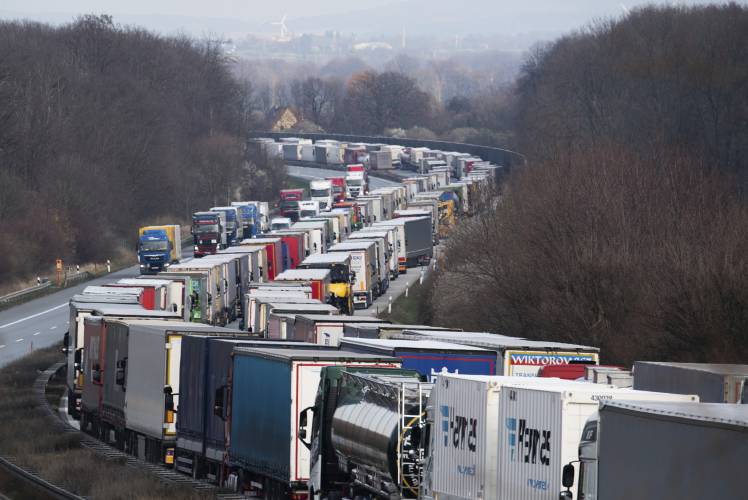
When the new normal arrives, many planes will still be grounded as the airlines will be bankrupt.
Land borders have also been restricted – even in Europe, where freedom of movement has been a particular cornerstone of public policy for generations. And even within countries.
Whilst travel might be the last thing on your mind right now, you should consider that, in the new normal, borders will not return to the way they were overnight, if at all. Just as the response to the virus has differed widely between countries, so it will continue. Some countries might decide they rather like leaving entry restrictions as they are. At the very least, we can expect 6-12 months of disruption – maybe more.
Many people are getting a taste of working from home for the first time and like what they see. Companies and governments are seeing that they really can save a lot of money on office space by introducing teleworking on a permanent basis. I see this as a positive effect. But it may mean less demand for physically open borders in the future. In any case, the demand for open borders usually comes from business, not the general populace.
When Two Passports are Not Enough
I’m a big proponent of holding multiple citizenships and passports and, in the past, I have been critical of people who see “visa-free travel” as the main advantage of particular passports. Multiple passports are useful in multiple situations – but times of crisis are when a passport could literally mean the difference between life and death. A second or third passport is the ultimate “Plan B.”
Visa-free travel to the Schengen area in Europe has long been the litmus test for citizenship-by-investment programs, such as those of the Eastern Caribbean and Vanuatu. For now, all that is over – as I write, even EU citizens do not have reliable visa-free travel within the EU!
The new normal we are already seeing is that citizens will be allowed into their country of citizenship – if they can get there. Long-term permanent residents are typically also being allowed to return home, whereas tourist arrivals are barred from entry.
I personally learned that lesson the hard way last week. I wanted to travel to Panama and they had closed the borders to all but Panamanians and permanent residents. Even though I have a home in Panama and travel there often, it has always been so easy to enter – 180 days visa-free entry just for showing my passport at the border – that I just never bothered to obtain the resident card. Big Mistake! Now I can’t go home. (Fortunately, the story has a happy ending as I have a few other homes around the world)
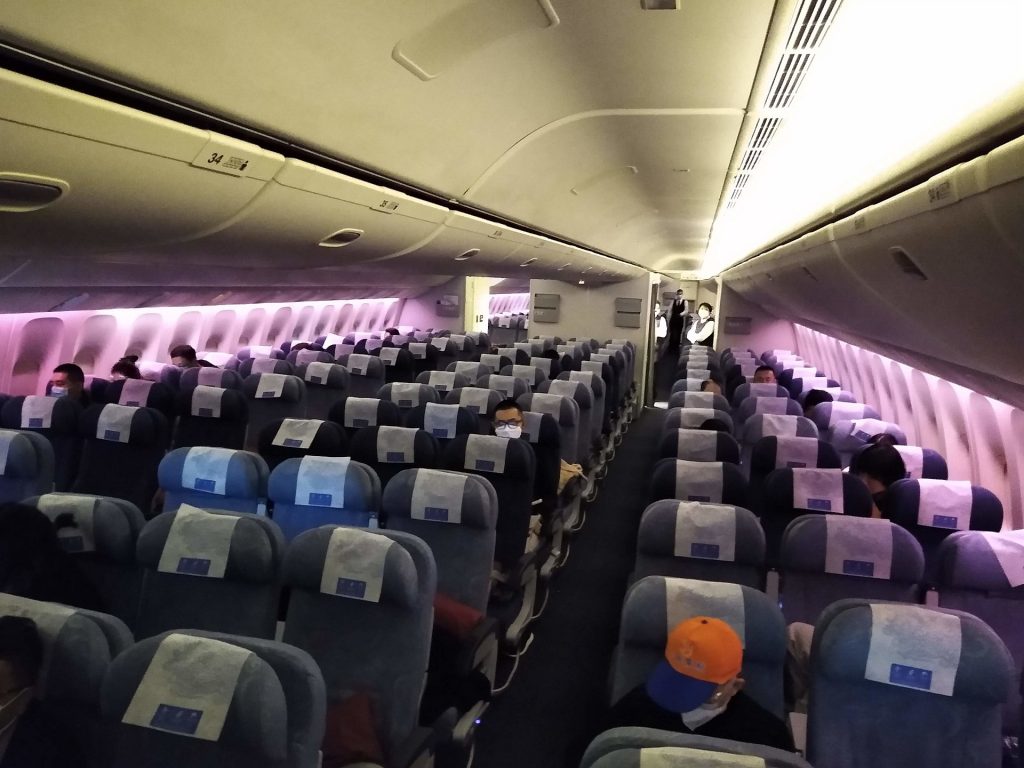
In your emergency planning, you first need to know where you want to get to – more on that below. Forget about having visa-free travel to where you want to go – or even a Schengen visa. Your best chance to be allowed in, when a future Black Swan event occurs, is to have either a passport or a residence permit from the exact country you want to travel to. It’s worth noting that remote islands are going to be the most inaccessible places although, if you can get there, they may be some of the safest. Remember, we are talking about planning for Black Swan events in general, and the next one might be completely different in nature!
Where Will Your Emergency Safe Haven Hideout Be?
This is a difficult one. Since we don’t know the exact nature of a future crisis, it is hard to predict where you will be safe. The only prudent solution I can see is to diversify risk by keeping multiple bases in different jurisdictions – if your situation allows it.
For the moment, food supplies around the world seem to be holding up. Depending on how long emergency measures last, this may not go on forever. If food supplies falter, a rural area is clearly the best place to be. If the worst comes to the worst, at least you can produce your own food and barter with other food producers in the vicinity.
On the other hand, you might need access to high-quality medical care. For that, a rural area might not be ideal. If you are basically healthy, your attitude might have been like mine – that good care (or at least specialist medical evacuation) is available anywhere as long as you can pay for it. Therefore, a good worldwide health insurance policy – or a wad of cash and credit cards in the worst case that your insurance is not accepted – was all you needed.
Consider, though, that local citizens and residents are likely to receive preference for limited healthcare resources, even over people with more money – and, frankly, that is how it should be.
Good internet connections are also something you should look at. If you run a business, you need to be prepping for your business too. Good continuity plans can help you keep things ticking over.
Then there is the “blood in the streets” factor to consider. Whilst we will all want to be far removed from physical violence, different people have greater or lesser tolerance for instability around them. For example, would you rather live under lockdown in Monaco or Andorra, or would you prefer Buenos Aires or Panama City? In the former options, you will be in a very conformist society, with limited freedoms, but you are less likely to see looting or violence.
In Panama, protestors have been blocking highways out of the city, trying to stop people from escaping to the countryside, over fears that the city people are virus carriers. In Germany, the police have been stopping people from leaving the city of Hamburg to go to their weekend houses in nearby Schleswig-Holstein. This stuff I find scary: I know many people who live in cities but have a nearby country retreat they plan to escape to if the city becomes unbearable. Now we see first-hand that, if a city is in lock-down, this strategy won’t work.
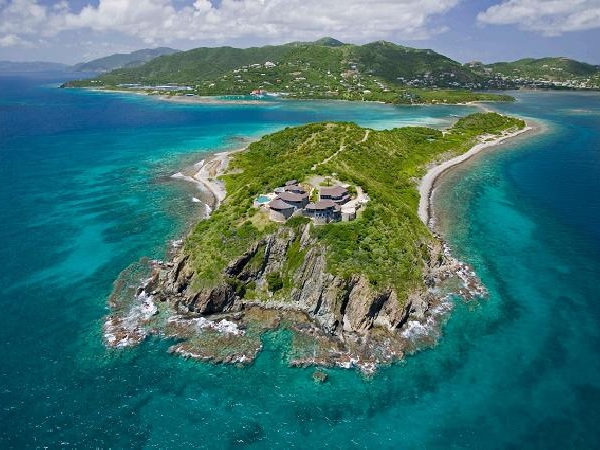
Another valuable lesson is not to hesitate. Usually, there are warning signs of a few days or even weeks. Even when I saw Italy go on lockdown, I, for one, did not expect the rest of Europe to follow. Now that we know it is possible, let’s be prepared for anything. If you need to get out of town to go somewhere safer, do so while you still can.
Physical or Virtual Immigration?
Up until now, many of the government-sponsored residence and citizenship by investment programs have required little time in the country. Portugal, for example, requires seven days of residence per year under its Golden Visa program. Most of the Caribbean jurisdictions don’t even require a visit.
These programs have already been proving politically unpopular. And I think that, under the ‘new normal’, we will see more political opposition to ‘virtual ‘ residents, but also more people willing to create substance or put down roots in their chosen destination country or countries.
I believe the immigration business in the future will see less focus on visa-free travel (now that this has basically been proven not to work in times of crisis) and more on where you can live with a high quality of life, with a decent health system, surrounded by people whose culture and outlook on life you feel comfortable with. We are already seeing this with Portugal, and I think the business start-up visas launched there last year will start to show themselves as very attractive. Portugal is not a perfect place but, in my view, it ticks a lot of boxes for a lot of people as a home base.
Talking about putting down roots, I think this crisis will teach people the importance of community. Imagine the difference between fleeing a crisis to a place you’ve never been to before (as millions of refugees are sadly forced to) and fleeing a crisis to a place where you not only hold residency papers but are friendly with the local people.
The coronavirus is bringing out the best of people in many communities, the way that people work together for the common good in wartime. People are taking care of neighbors and vulnerable members of the community, and finding time to socialize more – even if it is a chat over the fence or a quick phone call to check on senior citizens.
Now is the perfect time to see how communities are coping, and think “would I like to be stuck there during a future crisis?”
If you’re not on the ground, you just need to go on social media and start looking at what is going on there. In case you don’t speak the local language, everywhere in the world you will find English-speaking expat groups and they are uniting to help each other out on Facebook, WhatsApp and Twitter as never before. It’s a great way to get a feel for what is going on, and literally make friends in the right places.
Overall, my ideal situation is to have a few bases around the world that I can freely move between in ‘normal’ times but any of which I would be comfortable being stuck in for an extended period if it became necessary. Living out of Airbnbs is not for me – we need to buy houses and apartments and have some storage space for our things.
Around each base, it’s important to have friends and business contacts. And, as I learned by not being able to visit my Panama base, it’s important to have either local citizenship or a local residence permit!
And in case things spiral and looting starts, guess what businesses would be a prime target! I would definitely consider getting everything you possibly can out of safe deposit boxes right now.
Perhaps most scarily, I can see as very likely that cross-border financial services could be shut down at any time, or severely restricted (read: introduction of currency controls). Such controls could be easily justified and supported by the population in the current environment. Be guided accordingly.
Stay vigilant
Nobody knows what will happen next. It’s important that we all keep observing, and thinking about the consequences of things we see. Above all, keep healthy, and keep following our advice. We will be back over the coming weeks with lots of important intelligence to help you protect your health and your wealth.
Peter Macfarlane is a writer and commentator on global financial matters, personal privacy, and offshore wealth creation. This article is adapted from a longer article originally published on the Q Wealth Report website where Peter also covers topics such as cash, asset protection and more geopolitical commentary. Peter’s occasional IMI Daily column is sponsored by NTL Trust, one of the leading providers of Investment Immigration services across the Caribbean and around the world.
Christian Henrik Nesheim is the founder and editor of Investment Migration Insider, the #1 magazine – online or offline – for residency and citizenship by investment. He is an internationally recognized expert, speaker, documentary producer, and writer on the subject of investment migration, whose work is cited in the Economist, Bloomberg, Fortune, Forbes, Newsweek, and Business Insider. Norwegian by birth, Christian has spent the last 16 years in the United States, China, Spain, and Portugal.

